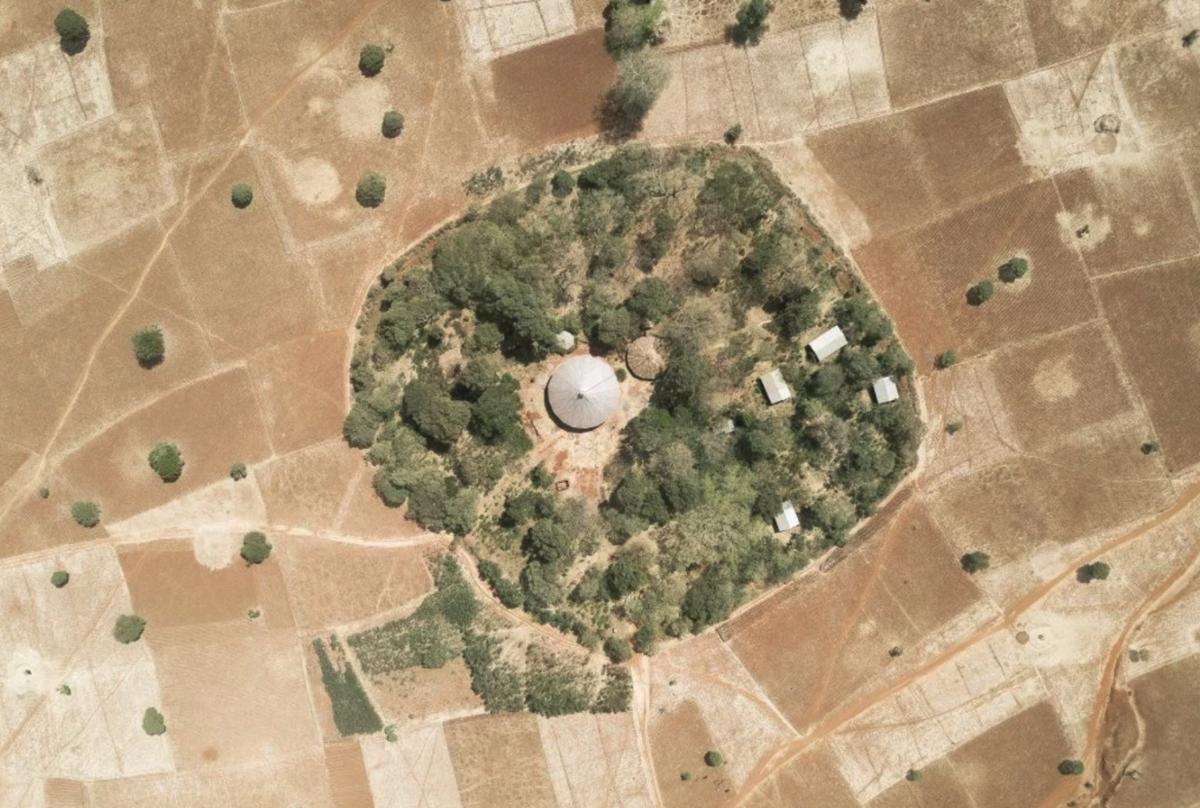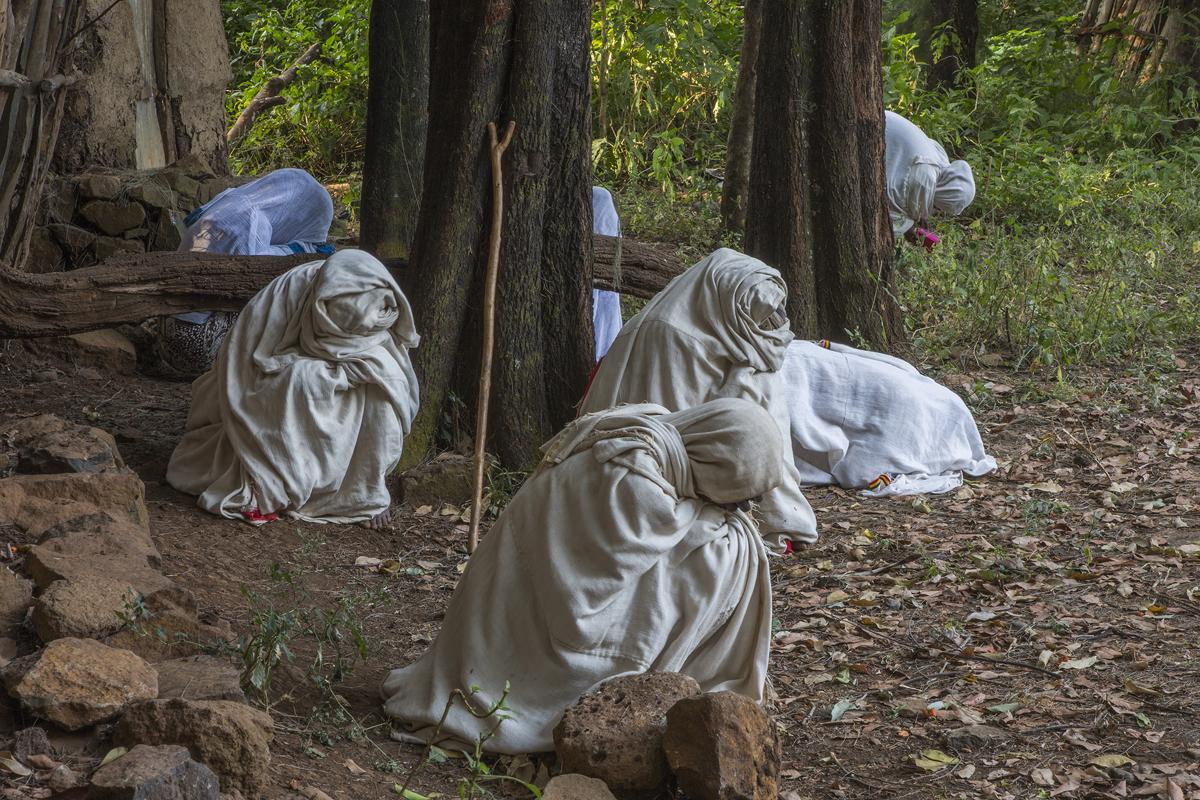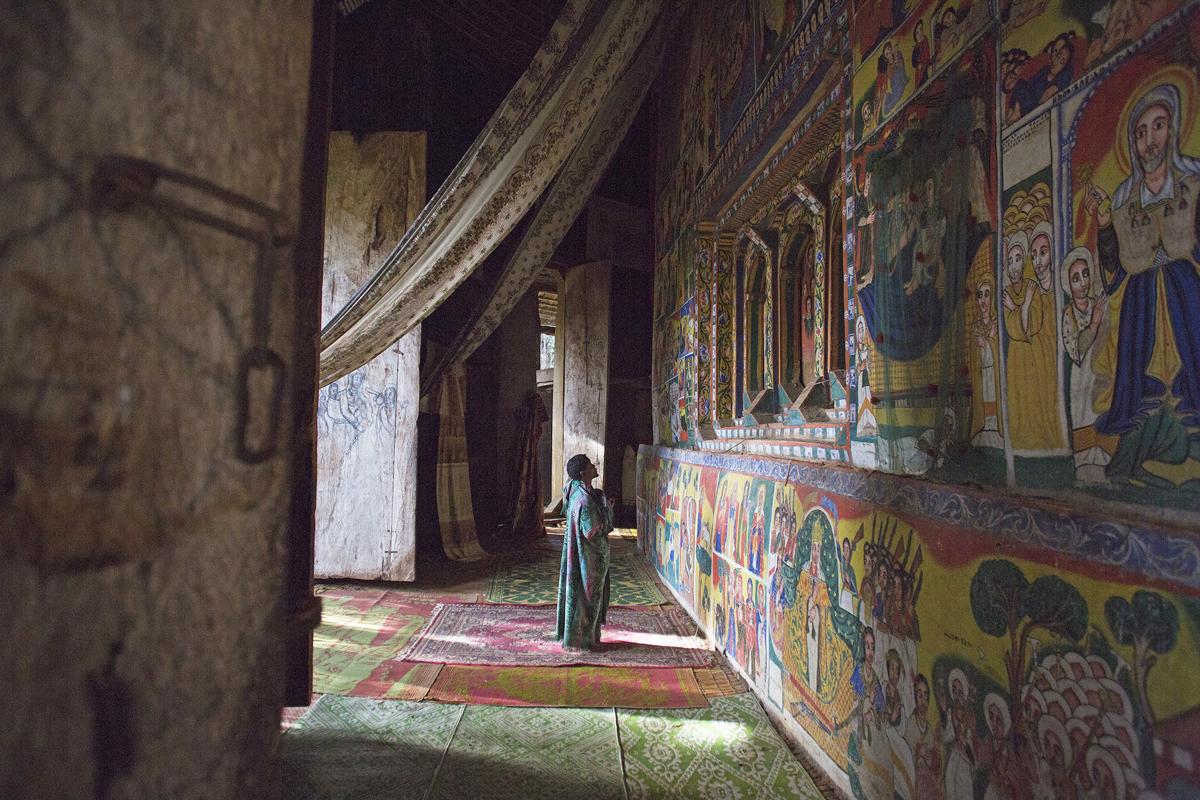March 25: The Blessed Benefits of Salvation
♫ Music:
Day 24 - Friday, March 25
Title: THE BLESSED BENEFITS OF SALVATION
Scripture: Psalm 84 & 133
How lovely is Your tabernacle,
O Lord of hosts!
My soul longs, yes, even faints
For the courts of the Lord;
My heart and my flesh cry out for the living God.
Even the sparrow has found a home,
And the swallow a nest for herself,
Where she may lay her young—
Even Your altars, O Lord of hosts,
My King and my God.
Blessed are those who dwell in Your house;
They will still be praising You. Selah
Blessed is the man whose strength is in You,
Whose heart is set on pilgrimage.
As they pass through the Valley of Baca,
They make it a spring;
The rain also covers it with pools.
They go from strength to strength;
Each one appears before God in Zion.
O Lord God of hosts, hear my prayer;
Give ear, O God of Jacob! Selah
O God, behold our shield,
And look upon the face of Your anointed.
For a day in Your courts is better than a thousand.
I would rather be a doorkeeper in the house of my God
Than dwell in the tents of wickedness.
For the Lord God is a sun and shield;
The Lord will give grace and glory;
No good thing will He withhold
From those who walk uprightly.
O Lord of hosts,
Blessed is the man who trusts in You!
Behold, how good and how pleasant it is
For brethren to dwell together in unity!
It is like the precious oil upon the head,
Running down on the beard,
The beard of Aaron,
Running down on the edge of his garments.
It is like the dew of Hermon,
Descending upon the mountains of Zion;
For there the Lord commanded the blessing—
Poetry:
Briefly It Enters, and Briefly Speaks
by Jane Kenyon
I am the blossom pressed in a book,
found again after two hundred years. . . .
I am the maker, the lover, and the keeper. . . .
When the young girl who starves
sits down to a table
she will sit beside me. . . .
I am food on the prisoner's plate. . . .
I am water rushing to the wellhead,
filling the pitcher until it spills. . . .
I am the patient gardener
of the dry and weedy garden. . . .
I am the stone step,
the latch, and the working hinge. . . .
I am the heart contracted by joy. . . .
the longest hair, white
before the rest. . . .
I am there in the basket of fruit
presented to the widow. . . .
I am the musk rose opening
unattended, the fern on the boggy summit. . . .
I am the one whose love
overcomes you, already with you
when you think to call my name. . . .
THE UNITY OF PRAISE
The medieval cathedral of St. Andrews now lies in ruins. The east gable, looking out upon the sea, still remains. Several walls and arches also stand, although the stained glass disappeared centuries ago from the windows. Grass and small daisies carpet the aisles of the nave. Together with the other students of the university’s Christian Union, I would sometimes return to this place for worship. Music and joyful voices filled the deserted places, a striking image of the continuity of the church throughout the ages. Although the building was gone, and the weather further eroded the crumbling walls and pillars, the praise of God’s people continued, and our songs recalled his faithfulness.
Psalm 84 describes pilgrims who are traveling to the temple. Longing and desire for God’s presence overwhelms them on their journey to his house. Now, the presence of God dwells within us. This individual relationship with God binds us to all who are united with him, and the spaces where we gather reflect the communal essence of the gospel. Kieran Dodd’s art depicts “hierotopy,” the creation of sacred spaces, and his photographs reveal the beauty of the spaces set apart for worship by the Ethiopian Orthodox Church. As the apostle John reminds us, our joy is made complete in fellowship with the Father and Son, and also with all who are partakers in that fellowship (1 John 1:3-4).
When God’s people gather for corporate praise, two key results occur in the lives of Christians. First, our praise reminds us who God is and what it means to be unified with him. He has given us the ultimate blessing of salvation in freeing us from sin and giving us the assurance of his love through the sacrifice of Christ and the indwelling companionship of his Spirit. Our psalm today also proclaims that God is both a sun and a shield––providing us with light and protection in our journey through life–– he gives grace and glory, he does not withhold good, and even as we traverse through valleys of weeping, he enables us to move from strength to even greater strength through him.
Second, praise brings unity with others who are also praising. For each of us, as “heart and flesh cry out to the living God,” our praise causes us to focus on what joins us together. We live, as Christians have always lived, in tumultuous times. In the past few years, divisions of all kinds, on medical, social, and political issues, have racked our world, including the church. God’s power has not failed, however, nor has the authority of his word. He continues to produce the fruits of his Spirit in our lives. We stand together in repentance of sin, boldness in declaring the gospel, confidence in our adoption as his children, and in joyful intimacy with him. Cultural trends and time-bound perspectives change, and buildings crumble, but all that unites us in fellowship remains the same.
Prayer:
Father, we join together in praise, glorifying you and waiting in eager expectation for you to work, transforming our lives and the body of the church into the image of Christ.
Amen.
Dr. Laurie Wilson
Assistant Professor
Torrey Honors College
Biola University
For more information about the artwork, music, and poetry selected for this day, we have provided resources under the “About” tab located next to the “Devotional” tab.
About the Artwork:
Hierotopia: The Living Sacred Landscape I and II
Kieran Dodds
2018
Color photographs
Variable sizes
Ethiopia’s Orthodox Tewahedo Churches
In the last one hundred years, over ninety percent of Ethiopia’s forests have been lost. Yet in the area east of Lake Tana, the source of the Blue Nile, green ‘church forests’ are scattered like islands across the arid landscape. As deforestation and urbanization have progressed, Ethiopia's forests have been encroached upon and destroyed, but the Ethiopian Orthodox Church has been protecting forested areas. Photographer Kieran Dodds was commissioned to photograph these church forests and the Ethiopian people whose insight and beliefs have protected their forest inheritance and have created sacred spaces, sacred environments. Dodds says of his work, “I mirrored these perspectives in my work: seen from above, these forests are demarcated by the stark boundary between sacred and secular, church and field. On the ground, generations come and go in a ghost-like mist under the same canopy of ancient trees as their ancestors. The trees stand as more enduring witnesses to our brief existence. The air inside the forests is cool, fragrant and filled with a cacophony of life. This is in stark contrast to the arid silence of the surrounding land which is feeling the strain of centuries of human activity and agriculture. The churches and their surrounding trees are not detached from daily life but central to it, informing human work and relationships within society.” Hierotopy, from the Ancient Greek for ‘sacred’ and ‘place’, is the study of the relationship between objects within Byzantine churches as they seek to display invisible realities. The forests surrounding Ethiopia’s Orthodox Tewahedo churches have a similar function to other physical objects within the church building, such as the murals and icons and incense, directing the worshiper to look beyond what is visible.
https://www.kierandodds.com/work/hierotopia/
www.ahmansongallery.com/hierotopia
About the & Artist:
Kieran Dodds (b. 1980) is a nonfiction photographer known for his research-driven photo stories and portraiture. His personal work considers the interplay of environment and culture, tracing global events through daily lives. He lives in Scotland with his wife and twin daughters. His work is represented by Panos Pictures, London, England.
https://www.kierandodds.com/
About the Music #1:
“Psalm 84” from the album Rain
Lyrics #1:
How lovely is Your dwelling place, oh Lord.
My soul it yearns, even faints for the courts of
God my heart and flesh, they cry out to the living.
God my heart and flesh, cry out to Him.
Even the sparrow may find a home in You, Lord.
The swallow may have her young near Your altar.
Oh, God my King.
Blessed are those who dwell with You
Within Your house, they give You praise.
Blessed are those, whose strength is in You.
Who are pilgrims with hearts on a journey to You
As they pass through the desolate valley of weeping.
They will make it all a place of springs.
The autumn rains will also cover it.
Oh, Lord, my God
Almighty God of Jacob
Listen to me and hear my prayer, oh Lord and
Look upon our shield
And look with favor upon Your anointed one
Listen to me.
Blessed are those, whose strength is in You.
Who are pilgrims with hearts on a journey to You.
They go from strength, to strength, to appearing
Before the Lord in Zion at the end
Better is one day in Your courts, oh Lord
Then a thousand elsewhere.
I would rather keep the door in God's house
Than dwell in tents of evil men.
For the Lord is a sun and a shield around me
And He showers His favor, His honor upon me
From the blameless He never withholds any good thing
He will not withhold any good thing.
And blessed are the ones who trust in Him.
About the Performers #1:
Sons of Korah is an Australian-based band devoted to giving a fresh voice to the biblical Psalms. With their unique acoustic, multi-ethnic sound, Sons of Korah have given this biblical songbook a dynamic and emotive new musical expression. They endeavor to lead their listeners into an impacting encounter with the Psalms that are often described as the “heart” of the Bible. From lamentation to songs of jubilant praise, from battle cries to benediction, from exclamation of awe and wonder to reflections of tranquility and perfect wisdom, the Sons of Korah seek to provide a compelling portrait of the world and experience of the Psalms. Believing that the Psalms contain a particularly pertinent message for today, Sons of Korah invite their listeners to discover, through their music, the way in which the Psalms can impact our lives today. Sons of Korah is composed of Matthew Jacoby, Spike Avery, Mike Follent, Rod Wilson, and Anna Waters. The name “Sons of Korah” comes from a group of Old Testament Levitical musicians to whom at least thirteen of the Psalms are attributed. The original Sons of Korah were responsible for the ministry of music and song in the Old Testament worship and particularly with the musical composition and performance of the Psalms.
https://sonsofkorah.com/
About the Composer #1:
Matthew Jacoby is the leading member of Sons of Korah. He co-writes the music, plays guitar and resonator, and sings lead vocals. Jacoby has a doctorate in philosophy/theology from the University of Melbourne, Australia. He teaches often on the spirituality of the Psalms and his concise commentaries on the compositions of the Psalms is a feature that is woven through most of Sons of Korah’s concert events.
https://sonsofkorah.com/
About the Music #2:
“Together In Unity (Psalm 133 )” from the Psalmody Project
Lyrics #2:
How good and pleasant it is
when God’s people live together!
Together, together, in unity together
in unity together
How good and pleasant it is
It is like precious oil poured on the head.
Running down the beard
Running down on Aaron’s beard.
Down the collar of his robe.
How good and pleasant it is
It as if the dew of Hermon
Were falling on Mount Zion
For there the Lord bestows his blessings
Even life forevermore.
In three short verses, the singer of Psalm 133 summarizes the goodness and pleasantness of kindred living together in unity and likens that goodness and pleasantness to two powerful metaphoric images—oil and dew. The words of the psalm remind us that our “ family” relationship is established not by blood, but by our mutual share in the community of God, a community that has received blessings from God.
https://www.psalmody.net/psalm133
About the Composer/Performer #2:
Graham Gaines is a singer/songwriter and one-man multi-instrument band that combines layers of trumpet, vocals, keyboard, and percussion with influences from jazz and indie electronica.
https://www.facebook.com/grahamgainesmusic/
https://www.psalmody.net/psalm133
About the Poet:
New Hampshire's poet laureate at the time of her untimely death at age forty-seven, Jane Kenyon (1947–1995) was noted for verse that probed the inner psyche. It was particularly honest regarding her battle against depression that lasted throughout much of her adult life. Kenyon wrote for the last two decades of her life at her farm in northern New England and is remembered for her stoic portraits of domestic and rural life. Essayist Gary Roberts noted in Contemporary Women Poets that her poetry was "acutely faithful to the familiarities and mysteries of home life, and it is distinguished by intense calmness in the face of routine disappointments and tragedies."
https://www.poetryfoundation.org/poets/jane-kenyon
About the Devotion Author:
Dr. Laurie Wilson
Assistant Professor
Torrey Honors College
Biola University
Laurie Wilson, an assistant professor in the Torrey Honors College at Biola University, received her master’s degree in Greek and Latin and her doctoral degree in classics from the University of St. Andrews in Scotland, where she was an H. B. Earhart Foundation fellow and a postgraduate fellow in the James Wilson Programme for Constitutional Studies. This background reflects her passion for classical studies and interdisciplinary research, which has focused on Augustine, Cicero, and writings from the American founders.


